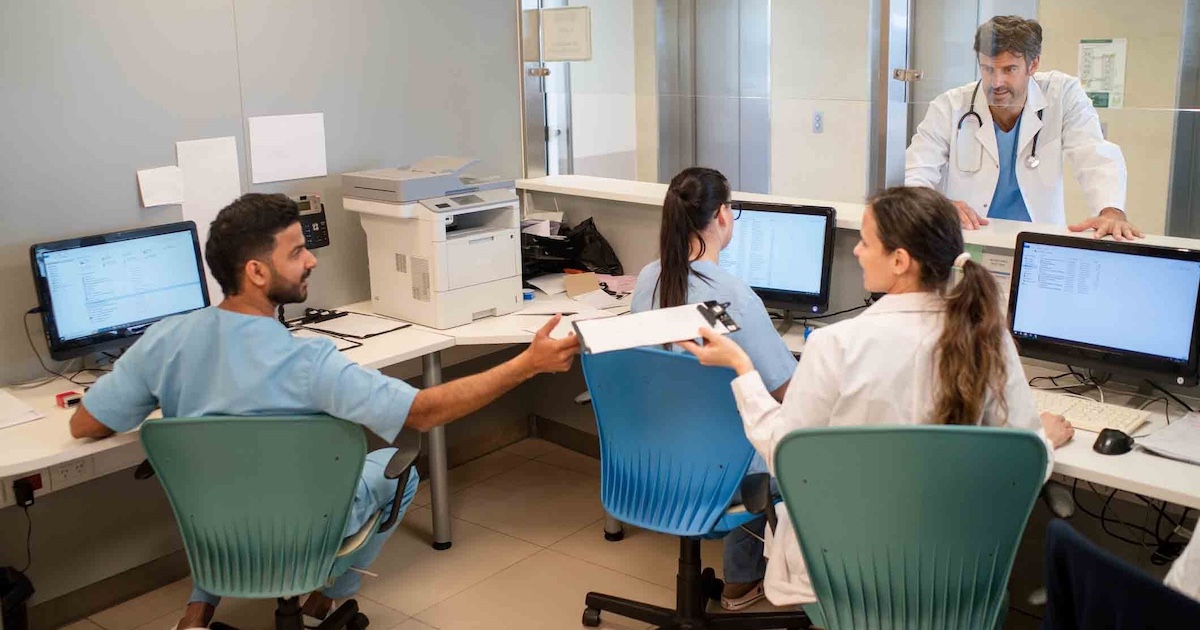After several months in beta, Ringadoc has unveiled its provider-facing telemedicine solution, designed to give doctors an alternative to the call center in dealing with after-hours patient requests.
Ringadoc Exchange gives doctors the ability to triage their own patient calls from a smartphone or mobile device, says Jordan Michaels, CEO and co-founder of the San Francisco-based company. It's also designed to give them to ability to set fees for enhanced after-hours service.
"We've repurposed our consumer-facing technology for doctors," says Michaels, whose network now encompasses more than 500,000 patients in 20 states and roughly 100 providers. "We wanted to customize the solution for them, give them the opportunity to be paid for their time after-hours."
With Ringadoc Exchange, the company joins the likes of American Well and Teladoc, all of which began by offering telemedicine services to patients and then saw the business opportunities that such a service could provide to physicians. The development of a provider-facing solution targets a growing interest in the healthcare landscape to give physicians – especially those in small practices – a new business line similar to a concierge medicine service.
Michaels says the company's physician base has been clamoring for a platform that would enable them to conduct their own telemedicine business, rather than farming out after-hours enquiries to a call center.
"Traditionally, doctors have relied on 1970s-era technology to handle their after-hours calls," he said in a press release accompanying the launch. "In an instant, connected world where technology delivers whatever consumers want – from taxis to books to groceries – patients can now expect the same thing from their doctor."
"We're showing doctors that adapting to the world of on-demand access actually makes their lives easier," he added.
Ringadoc was launched at the 2010 Health 2.0 Conference in San Francisco as a software application that enables patients to make a phone call and be instantly connected to a licensed physician. Last year, the company received seed funding from FF Angel, a seed investment vehicle of Founders Fund, a San Francisco-based venture capital firm. Also investing were Curious Minds, a Los Angeles-based tech incubator, and Practice Fusion, a San Francisco-based developer of online EMR technology whose CEO, Ryan Howard, joined the Ringadoc board.
“(A) good solution for instant, on-demand medical service for people without their doctor’s home phone number – essentially everyone – has basically never existed until Jordan Michaels and his team developed Ringadoc," said Brian Gibney, a partner at Founders Fund, in a June 13, 2012 press release announcing the initial seed funding. "While the problems of inefficiency of in-person primary care are finally being addressed, direct, no-wait access to physicians has not been solved even though telepresence is extraordinarily fast, cheap and widespread. Ringadoc has finally solved that problem and will bring relief to thousands of people with immediate medical needs."
“Our vision for Ringadoc is for it to be the frontline of all non-urgent patient care,” Howard said in the June 2012 press release. “They offer multiple channels for patients to reach doctors beyond waiting for in-person office visits, while also making it easier for doctors to manage the overflow of patients. It’s a powerful solution.”
This week, Ringadoc announced it has received more seed funding led by FF Angel, bringing the total to $1.2 million. Michaels, citing a survey that indicates 70 percent of doctors want the ability to charge patients for after-hours service, says the funding will be used to expand the company's physician network and further develop Ringadoc Exchange.
"It's going to be very flexible," he says. "We're giving doctors what they want – and really, what their patients want, too."


